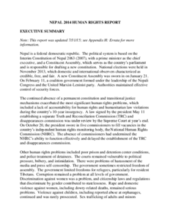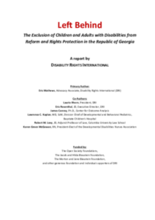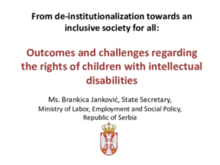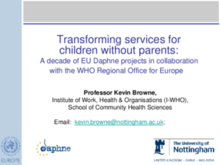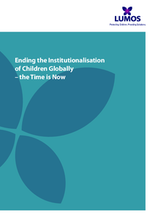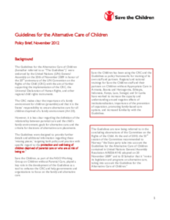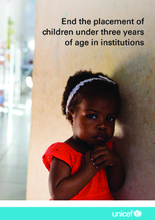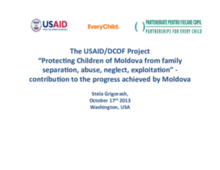Displaying 531 - 540 of 744
This report, published by the US Embassy in Nepal, includes a segment on human rights issues related to orphanage voluntourism and donors, child abuse in child care homes, and a lack of Government regulation of institutions.
This qualitative study explored the experiences of adults who had lived in group home care as adolescents and transitioned back into the community at the end of their treatment.
This video by Save the Children highlights the major reforms ongoing in Georgia to end harmful child institutionalisation and the work of its project to support the Government in this reform process.
This hard-hitting report by Disability Rights International is the product of a 3-year investigation into the orphanages, adult social care homes and other institutions that house children and adults with disabilities in the Republic of Georgia. It finds that although the Government of Georgia has undertaken an ambitious child care reform process over the last decade, institutionalized children with disabilities were largely excluded from this reform process.
This presentation to the 2012 Sofia Conference by Brankica Janković, State Secretary, Ministry of Labor, Employment, and Social Policy, introduces the achievements and challenges faced in altering the attitude of professionals working with children with disabilities from preferring institutions to family-based care systems.
This presentation to the 2012 Sofia Conference by Kevin Browne, Institute of Work, Health, and Organizations (I-WHO), School of Community Health Services at the University of Nottingham, introduces the collective findings of his research studies on the harmful effects of institutionalization of young children and major causes of child abandonment in Europe and prevention methods.
In the attached document, Lumos reports that 8 million children worldwide are in institutions globally.
This policy brief by Save the Children introduces the background, goals, and guiding principles of the Guidelines for the Alternative Care of Children endorsed by the UN General Assembly on the 20th of November 2009 while also explaining why family-based care is a preferred care arrangement over institutions. Furthermore, it suggests policy and practice recommendations to further protect children without appropriate care and strengthen families and communities.
On the 22nd October 2013, a new regional campaign in the Latin American and Caribbean region was launched to end the placement of children under three years of age in institutions.
The first of two important presentations by Dr. Stela Grigorash, the Director of Partnerships for EveryChild Moldova, on the important work and lessons learnt in reforming the care system in that country.

